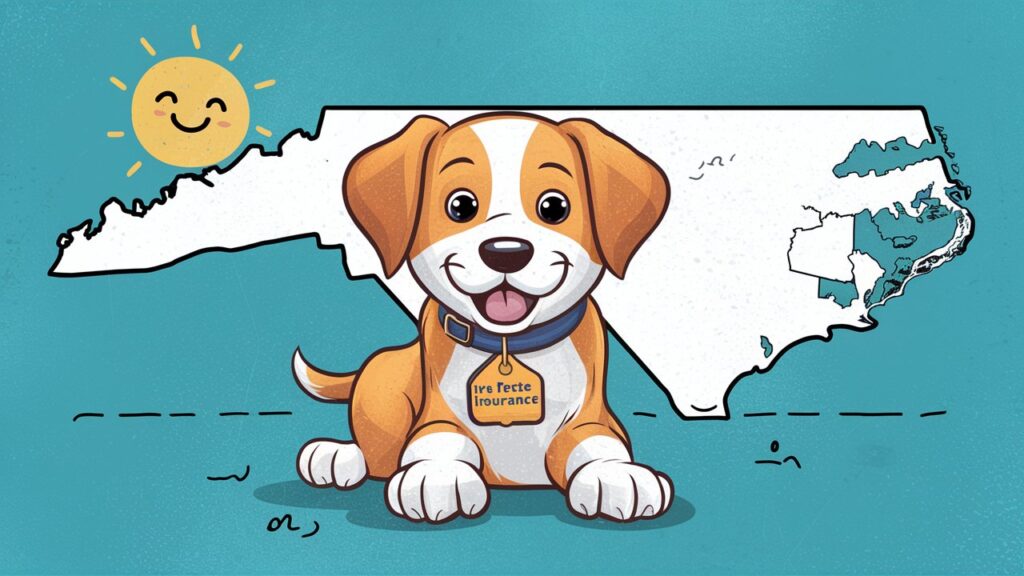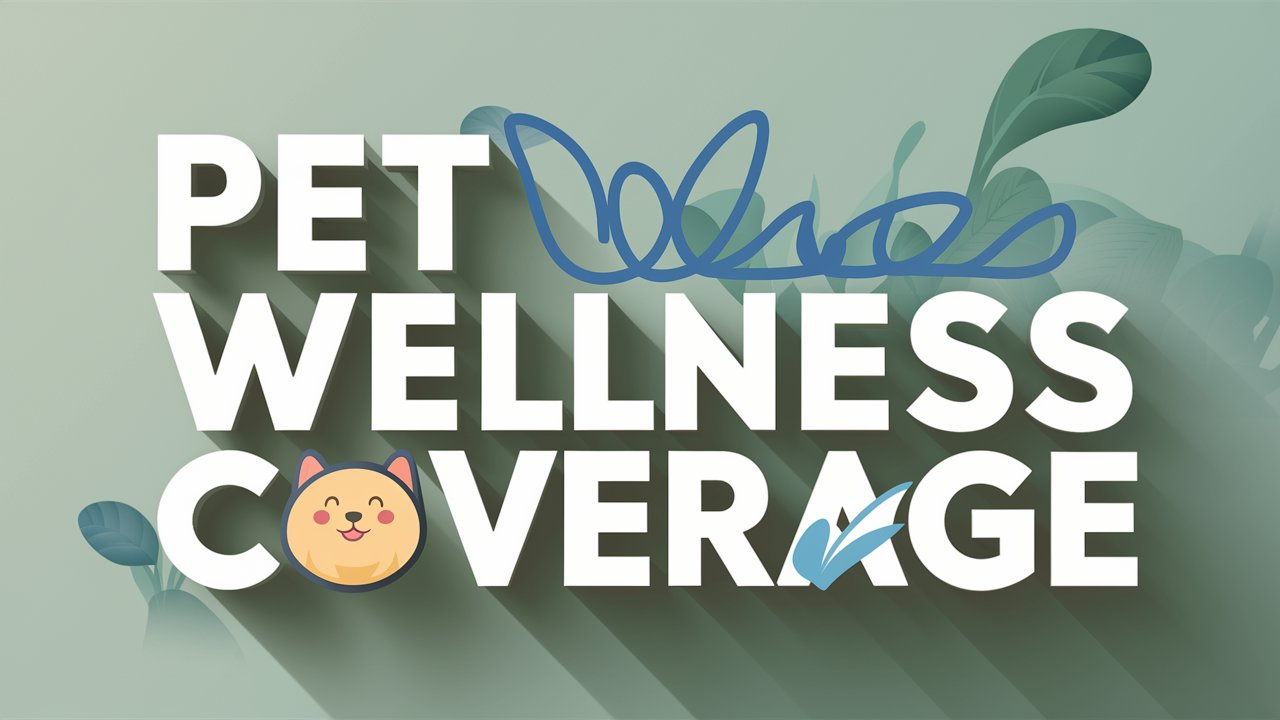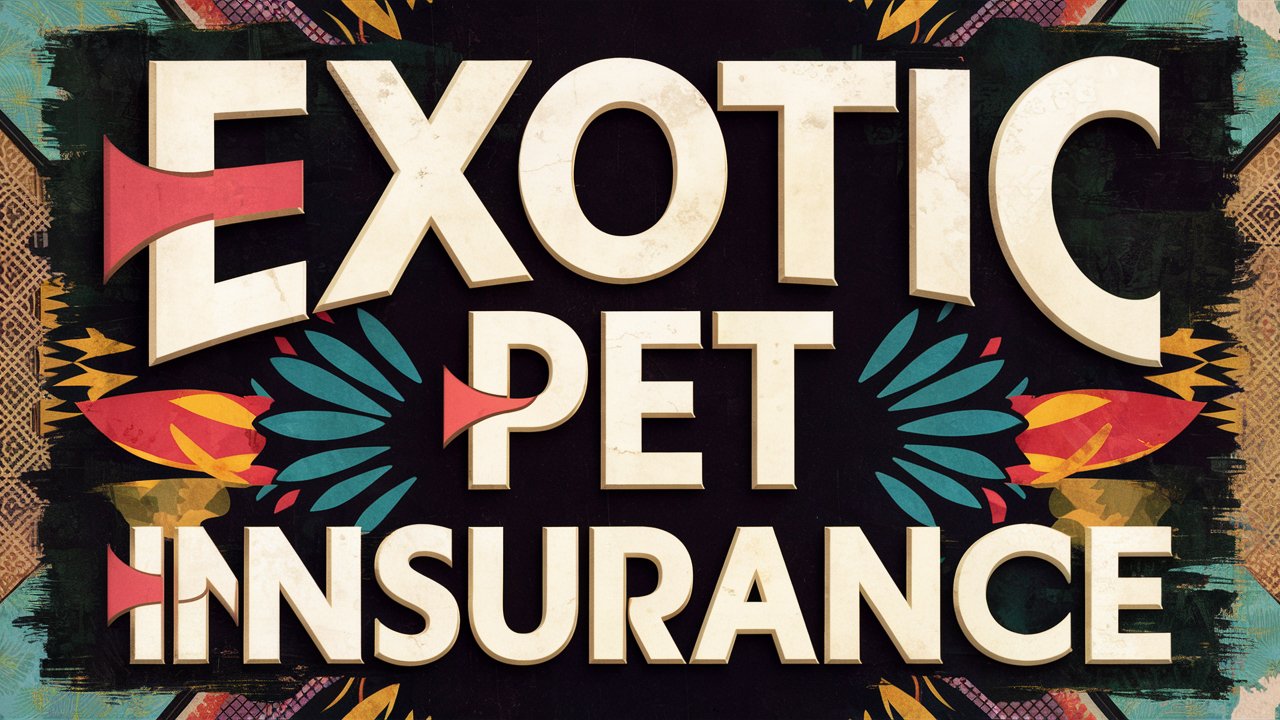Introduction
As a pet owner in North Carolina, you know that your furry friends are more than just animals; they’re family. Whether you have a playful pup, a curious cat, or any other beloved pet, their health and well-being are paramount. However, just like humans, pets can encounter unexpected health issues, accidents, and illnesses that can lead to significant veterinary bills. This is where pet insurance comes into play, offering a safety net to ensure your pets receive the best care without breaking the bank.

Navigating the world of pet insurance can be daunting, especially with the plethora of options available. This comprehensive guide aims to demystify pet insurance, specifically tailored for pet owners in North Carolina. We’ll explore what pet insurance is, why it’s essential, how to choose the right plan, and the top providers in the state. By the end of this guide, you’ll be equipped with the knowledge to make informed decisions for your pet’s health and your financial peace of mind.
What is Pet Insurance?
Pet insurance is a type of health insurance designed specifically for pets. It helps cover the cost of veterinary care, ensuring that your pet can receive the necessary treatment without putting a strain on your finances. Much like human health insurance, pet insurance policies can vary widely in terms of coverage, cost, and benefits.
Why Pet Insurance is Essential
- Rising Veterinary Costs
Veterinary care costs have been steadily increasing. Advanced medical treatments, diagnostic tools, and specialized care for pets can be quite expensive. Pet insurance can help mitigate these costs, making it more feasible to provide high-quality care for your pets.
- Unexpected Health Issues
Pets can suffer from sudden illnesses, accidents, or chronic conditions that require ongoing treatment. Having insurance ensures that you can afford the best possible care without hesitation.
- Peace of Mind
With pet insurance, you can rest easy knowing that you have a financial safety net. This peace of mind allows you to focus on your pet’s recovery rather than worrying about the cost of treatment.
- Comprehensive Coverage
Many pet insurance plans offer comprehensive coverage, including preventive care, surgeries, medications, and emergency treatments. This comprehensive approach ensures that all aspects of your pet’s health are taken care of.
Understanding Pet Insurance Coverage
Pet insurance policies typically fall into three main categories
- Accident-Only Policies
These plans cover treatment costs resulting from accidents, such as broken bones, cuts, or ingestion of foreign objects. They do not cover illnesses or routine care.
- Accident and Illness Policies
These are the most common types of pet insurance policies. They cover both accidents and illnesses, providing a broader range of coverage. This includes treatments for conditions like cancer, diabetes, and infections, in addition to accident-related injuries.
- Comprehensive Policies
Also known as wellness plans, these policies cover accidents, illnesses, and preventive care. Preventive care can include vaccinations, routine check-ups, dental care, and flea/tick prevention.
Key Considerations When Choosing Pet Insurance
When selecting a pet insurance plan in North Carolina, consider the following factors
- Coverage Options
Assess the types of coverage offered by different insurance providers. Ensure that the policy covers the specific needs of your pet, such as breed-specific conditions, chronic illnesses, and emergency care.
- Cost and Premiums
Compare premiums across various providers. While lower premiums may seem attractive, they often come with higher deductibles or limited coverage. Find a balance between affordable premiums and comprehensive coverage.
- Deductibles and Reimbursements
Understand the deductible structure of the policy. Some plans have annual deductibles, while others have per-incident deductibles. Additionally, check the reimbursement rate, which is the percentage of the vet bill that the insurance will cover after the deductible is met.
- Exclusions and Limitations
Carefully read the policy’s exclusions and limitations. Some policies may not cover pre-existing conditions, hereditary conditions, or certain treatments. Ensure that you are aware of what is not covered to avoid surprises later.
- Provider Reputation
Research the reputation and customer reviews of the insurance providers. Look for companies with a strong track record of customer service, prompt claim processing, and transparency.
- Claim Process
Understand the process for filing claims and the typical turnaround time for reimbursements. A hassle-free and efficient claims process is crucial during stressful times when your pet needs immediate care.
Top Pet Insurance Providers in North Carolina
Healthy Paws Pet Insurance
- Overview
Healthy Paws is renowned for its comprehensive coverage and excellent customer service. They offer accident and illness plans with no caps on payouts, ensuring that your pet receives unlimited lifetime benefits.
- Coverage
Their plans cover accidents, illnesses, emergency care, surgery, hospitalization, and prescription medications. They do not cover preventive care or pre-existing conditions.
- Cost
Premiums vary based on the pet’s age, breed, and location. The average monthly premium for dogs is around $30-$40, while for cats, it’s approximately $20-$30.
- Claim Process
Claims can be filed through their user-friendly mobile app, with most reimbursements processed within a few days.
Embrace Pet Insurance in North Carolina
- Overview
Embrace offers customizable plans, allowing you to tailor coverage based on your pet’s needs. They also provide optional wellness plans for preventive care.
- Coverage
Their accident and illness plans cover a wide range of treatments, including dental illnesses, cancer treatment, and alternative therapies. Wellness plans cover routine check-ups, vaccinations, and dental cleanings.
- Cost
Embrace’s premiums are competitive, with dog plans averaging $25-$40 per month and cat plans around $15-$25 per month.
- Claim Process
Embrace has a straightforward claims process, with an online portal for submitting claims and a typical reimbursement time of 10-15 days.
Nationwide Pet Insurance
- Overview
Nationwide offers a variety of plans, including comprehensive wellness plans. They are one of the few providers that cover exotic pets in addition to cats and dogs.
- Coverage
Plans range from accident-only to comprehensive wellness coverage, including preventive care, dental care, and hereditary conditions.
- Cost
Premiums for Nationwide plans vary, with dog plans ranging from $35-$55 per month and cat plans from $15-$35 per month.
- Claim Process
Nationwide provides an online claims submission portal, with reimbursements typically processed within 30 days.
Trupanion Pet Insurance
- Overview
Trupanion is known for its straightforward and transparent policies. They offer a single, comprehensive plan with 90% reimbursement and no payout limits.
- Coverage
Their plan covers accidents, illnesses, surgeries, hospitalization, and prescription medications. They also offer additional coverage for alternative therapies and rehabilitation.
- Cost
Trupanion’s premiums are higher, with dog plans averaging $40-$60 per month and cat plans around $25-$35 per month.
- Claim Process
Trupanion offers direct vet pay, meaning they can pay the vet directly at the time of service, reducing out-of-pocket expenses for pet owners.
ASPCA Pet Insurance
- Overview
ASPCA offers flexible and customizable plans, making it easy to find coverage that suits your pet’s needs and your budget.
- Coverage
They provide accident-only, accident and illness, and preventive care plans. Their coverage includes treatments for chronic conditions, behavioral issues, and alternative therapies.
- Cost
Premiums are reasonable, with dog plans averaging $25-$45 per month and cat plans around $15-$30 per month.
- Claim Process
ASPCA’s claims process is efficient, with an online portal for submissions and reimbursements typically processed within 10-15 days.
How to Get the Most Out of Your Pet Insurance
- Start Early
Enroll your pet in an insurance plan while they are young and healthy. This helps avoid exclusions for pre-existing conditions and can result in lower premiums.
- Regular Vet Visits
Keep up with regular veterinary check-ups to catch any health issues early. Preventive care can prevent more serious (and costly) health problems down the line.

- Understand Your Policy
Familiarize yourself with your insurance policy’s details, including coverage limits, exclusions, and the claims process. This ensures you know what to expect when you need to use it.
- Keep Detailed Records
Maintain thorough records of your pet’s medical history, including vet visits, treatments, and prescriptions. This information can be crucial when filing claims.
- Use Network Vets
Some insurance providers have networks of preferred veterinarians. Using these vets can streamline the claims process and ensure you receive the maximum benefits.
Common Questions About Pet Insurance
Is pet insurance worth it?
Yes, pet insurance can be a valuable investment, especially if your pet faces unexpected health issues or accidents. It provides financial protection and peace of mind, allowing you to focus on your pet’s recovery.
What does pet insurance typically not cover?
Most pet insurance policies do not cover pre-existing conditions, elective procedures, breeding costs, and cosmetic surgeries. It’s essential to review your policy’s exclusions to understand what is not covered.
How are premiums determined?
Premiums are based on factors such as your pet’s age, breed, size, location, and the level of coverage you choose. Younger and healthier pets generally have lower premiums.
Can I use any veterinarian with pet insurance?
Most pet insurance policies allow you to use any licensed veterinarian. However, some providers may have a network of preferred vets that offer additional benefits.
How does the claims process work?
Typically, you pay the vet bill upfront and then submit a claim to your insurance provider. After processing, the provider reimburses you according to the terms of your policy. Some providers offer direct vet pay, where they pay the vet directly at the time of service.
Conclusion
Pet insurance is a crucial tool for pet owners in North Carolina, offering financial protection and peace of mind in times of need. By understanding the different types of coverage, considering key factors when choosing a plan, and knowing the top providers in the state, you can make informed decisions to ensure your pet receives the best possible care.
Investing in pet insurance not only safeguards your finances but also ensures that your furry family members get the medical attention they deserve. With the right plan in place, you can focus on creating lasting memories with your pets, knowing that their health and well-being are in good hands.
For more details please visit our home page: Click Here

